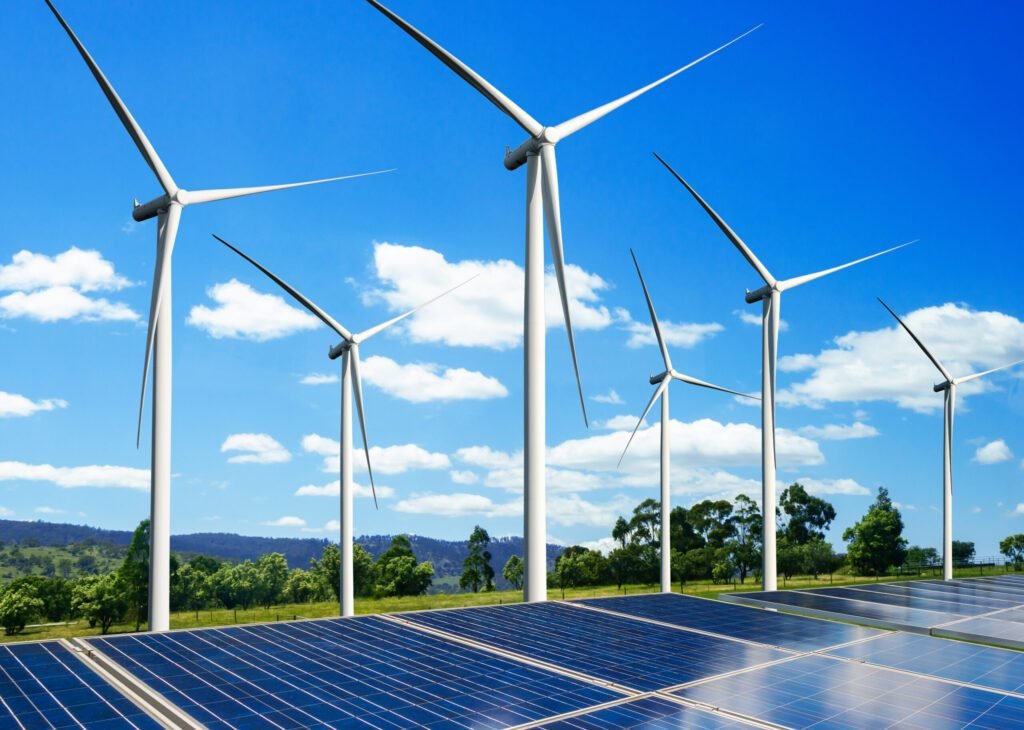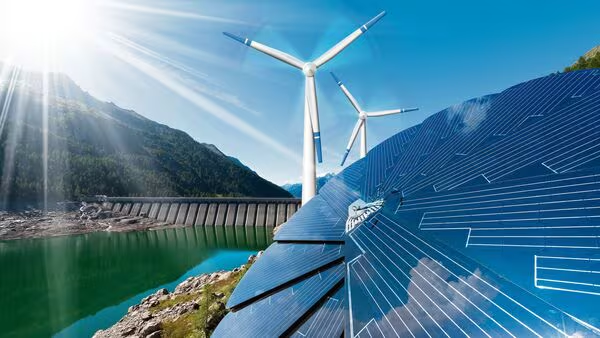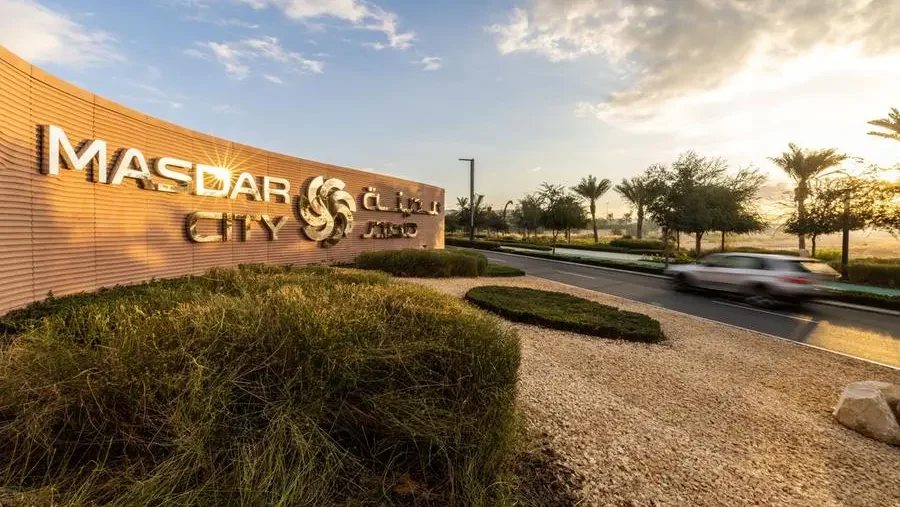India’s renewable energy sector has been buzzing with activity, and the latest move by a Masdar-led consortium has taken this excitement to a new level. The Masdar-led consortium ReNew Energy offer marks a significant step in the global race to invest in sustainable energy solutions. This fresh offer to acquire ReNew Energy showcases the growing confidence of international investors in India’s renewable energy future.
Who is Masdar and why is this offer important?
Masdar, officially known as the Abu Dhabi Future Energy Company, is a global leader in renewable energy and sustainable urban development. Backed by the government of Abu Dhabi, Masdar has invested in clean energy projects worldwide, from solar farms in the Middle East to wind farms in Europe.
Their renewed interest in India through the Masdar-led consortium ReNew Energy offer is a strong signal that the world sees India as a prime market for renewable energy expansion. With India’s ambitious target of achieving 500 GW of renewable energy capacity by 2030, it is no surprise that major international players want a piece of this rapidly growing market.

A closer look at ReNew Energy
ReNew Energy, founded in 2011, is one of India’s largest renewable energy companies. It operates over 13 GW of wind and solar energy assets and is a leading independent power producer. The company went public through a SPAC (special purpose acquisition company) merger and has since been listed on the NASDAQ.
ReNew Energy has played a critical role in reducing India’s dependence on fossil fuels and lowering carbon emissions. Its projects span across several Indian states, contributing significantly to the country’s green energy targets.

Why a fresh offer now?
The Masdar-led consortium ReNew Energy offer comes at a time when the global renewable energy sector is seeing renewed momentum after a slowdown during the pandemic years. Global investors are looking for stable, high-growth markets, and India ticks all the right boxes — a large population, increasing energy demand, supportive government policies, and abundant natural resources for solar and wind energy.
In recent months, ReNew Energy’s valuation has fluctuated due to market volatility and global economic uncertainties. This volatility might have created a strategic opportunity for Masdar and its partners to propose a fresh offer, possibly at a more favorable valuation.
Potential impact on India’s renewable energy landscape
If the Masdar-led consortium ReNew Energy offer goes through, it could unlock several advantages for India’s renewable sector:
- Increased foreign direct investment (FDI): A successful acquisition would boost confidence among other foreign investors, encouraging more capital inflow into India’s green energy market.
- Technology transfer and expertise: Masdar brings global expertise and advanced technologies that could enhance ReNew Energy’s operational efficiency and innovation capabilities.
- Acceleration of green targets: With stronger backing, ReNew Energy might scale up its capacity and help India reach its renewable targets faster.
Details of the offer

While exact figures of the new offer have not been publicly disclosed, industry sources suggest that the consortium is aiming for a controlling stake. Previous estimates valued ReNew Energy at around $4.5 billion. However, market insiders believe the fresh offer could value the company slightly lower or include additional terms to sweeten the deal for existing stakeholders.
The consortium reportedly includes other strategic investors alongside Masdar, possibly large sovereign wealth funds and institutional investors from the Middle East and Asia. This diverse backing signals a broad-based interest in India’s energy sector, extending beyond traditional oil and gas investments.
Reaction from stakeholders
The market reaction to the Masdar-led consortium ReNew Energy offer has been largely positive. Shares of ReNew Energy saw a modest uptick following the news, reflecting investor optimism about potential strategic synergies and future growth prospects.
Indian government officials have also welcomed the move, highlighting it as a sign of international confidence in India’s clean energy policies and investment climate.
However, some analysts caution that any such large-scale acquisition must navigate regulatory approvals, potential national security considerations, and local stakeholder concerns. Past foreign investments in India’s strategic sectors have sometimes faced delays or additional scrutiny.
What this means for ReNew Energy’s future
A successful acquisition would provide ReNew Energy with deep pockets and strong technical support, enabling it to:
- Expand into new markets within India and possibly other South Asian countries.
- Develop and deploy next-generation technologies, such as energy storage and green hydrogen.
- Strengthen its balance sheet and improve access to low-cost financing.
This could place ReNew Energy in an even stronger position to compete with domestic rivals like Adani Green Energy and Tata Power Renewable Energy.
Broader global trends behind the move
The Masdar-led consortium ReNew Energy offer reflects a wider trend of Middle Eastern investors diversifying into green energy. Traditionally dependent on oil revenues, countries like the UAE and Saudi Arabia have been aggressively investing in renewables to future-proof their economies and meet climate commitments.
India, with its high solar radiation levels and strong policy framework, is seen as a natural partner. Masdar’s move is part of its global strategy to build a diverse, geographically spread portfolio of renewable assets.
This is also in line with the UAE’s net-zero by 2050 goal and its ambition to become a global leader in sustainable energy.
Challenges and risks
While the offer seems promising, there are challenges that could influence the final outcome:
- Regulatory hurdles: India has stringent rules for foreign investments in strategic sectors, and energy is considered critical infrastructure.
- Currency fluctuations and financial risks: With global economic uncertainties, foreign investors must carefully consider currency and inflation-related risks.
- Execution risks: Integrating new technologies and management styles can sometimes lead to operational disruptions.
Despite these, the potential long-term benefits appear to outweigh the short-term hurdles.
What happens next?

The Masdar-led consortium ReNew Energy offer is currently in its preliminary stages. If the negotiations advance smoothly, the deal could be finalized in the next few months.
Analysts expect more detailed disclosures regarding deal structure, shareholding changes, and strategic roadmaps as discussions progress. Stakeholder approvals, including from regulatory bodies like the Competition Commission of India (CCI), will be crucial milestones.
If successfully closed, this transaction could set a new benchmark for international acquisitions in India’s renewable energy space.
A signal to the world
Beyond the immediate impact on ReNew Energy and Masdar, this move sends a clear signal to the world: India’s renewable energy sector is open for business and is ready to welcome global capital and expertise.
This is an encouraging sign for other green startups and large players considering India as their next growth destination.
Conclusion
The Masdar-led consortium ReNew Energy offer is more than just a corporate transaction; it represents a new chapter in India’s green journey and highlights the growing importance of cross-border collaborations in the fight against climate change.
As India marches toward its renewable energy goals, such deals can catalyze the scale and speed required to make a real impact. The coming months will reveal how this story unfolds, but one thing is certain the world is watching closely.
Follow us on instagram: UAE STORIES
Read More: SHE Awards Dubai Season 5: A Grand Comeback Celebrating Women Leaders












